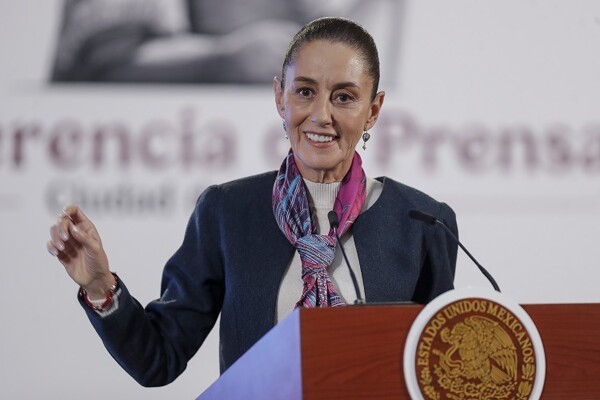
The Senate of Mexico will discuss the reform to the Telecommunications Law that allows for the "temporary blocking of a digital platform" for non-compliance with regulations, but the president, Claudia Sheinbaum, denied this Thursday that it means censorship. "At no time are we proposing censorship, we are against censorship, so there is a wording that relates to digital platforms, in any case, the wording itself needs to be corrected," declared the leader in her morning conference.
Sheinbaum defended the initiative she sent on Wednesday to issue the Law on Telecommunications and Broadcasting, which in its article 109 states that "the competent authorities may request the collaboration of the Agency (for Digital Transformation) for the temporary blocking of a Digital Platform." This will occur "in cases where it is appropriate due to non-compliance with provisions or obligations set forth in the respective regulations that apply to them" and the "Agency will issue the Guidelines regulating the procedure for blocking a Digital Platform."
The president of the largest opposition force, the National Action Party (PAN), Jorge Romero, warned that this implies "digital authoritarianism" and "puts freedom of expression in Mexico at risk." But Sheinbaum argued that this "has to do with whether there is a sanction from some other entity, due to security matters, due to not paying their taxes, due to other types of matters, that a digital platform commits, for violation of another law."
"The Agency has the authority to notify the platform that it will remove (the publication), but it has nothing to do with the content of the platforms, it would never be our intention to censor, as we have always been against censorship."
The reform is part of the initiative Sheinbaum announced on Monday to prohibit paid foreign propaganda after the airing in Mexico of commercials from U.S. Secretary of Homeland Security Kristi Noem against illegal immigration.
The new legislation will prohibit television and radio broadcasters from "transmitting political, ideological, commercial propaganda or any type from foreign governments or entities." Meanwhile, "digital platforms, whose content is available in national territory, will not be able to sell advertising space for the dissemination of advertising, propaganda, or any information from foreign governments."














